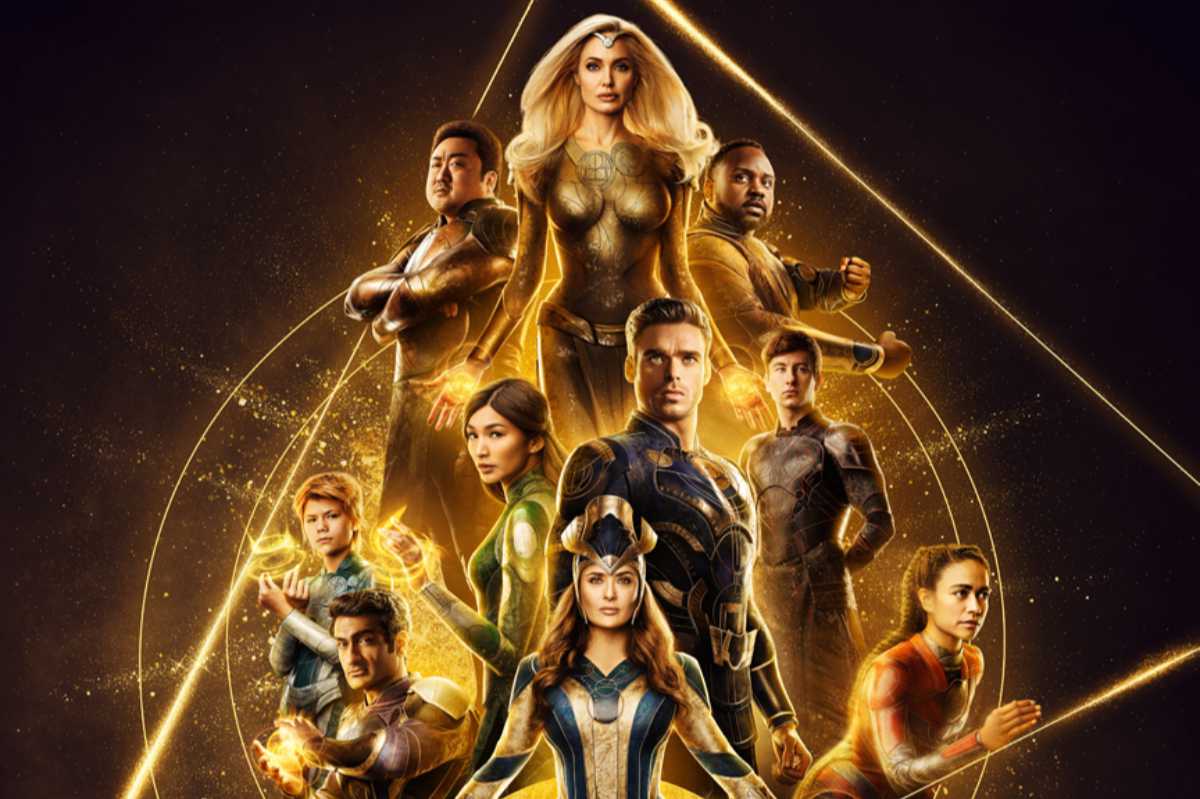FOR REFERENCE: This review of, “Eternals” is based on a theatrical viewing
Could you imagine if a guiding clan of immortal overseers bore witness to three separate ‘phases’ of Marvel Cinematic Universe battles and disasters, and did absolutely nothing about any of them? What? The Time Variance Authority from Disney+ series, Loki? No, I don’t mean them. The Watchers from Guardians of the Galaxy Vol. 2 and Disney+ series, What If…? No, I don’t mean them either. Most of Captain Marvel’s career since the MCU’s 1995? Hey, she showed up for Thanos at least!
Okay, apparently apathetic gods are an alarmingly common issue in the MCU… So here’s another batch of them! Enter Eternals, a movie about the latest faction of undying figures that are surprisingly comfortable with the MCU’s Earth, if not the universe itself, constantly being at stake from every direction. Oh, but don’t worry– They have an excuse to lift a finger this time, namely that their gargantuan space god boss is about ready to deliver on an ‘exciting’ little project that’s been drinking the thousands of years of Earth history that the Eternals supposedly cultivated and subtly shaped since about 1944 or so. Then they pretty much decided they were good, and that humanity’s increasingly out-of-control superhuman epidemic could take care of things from there. Yeah, the Eternals kind of dropped the ball on that one.
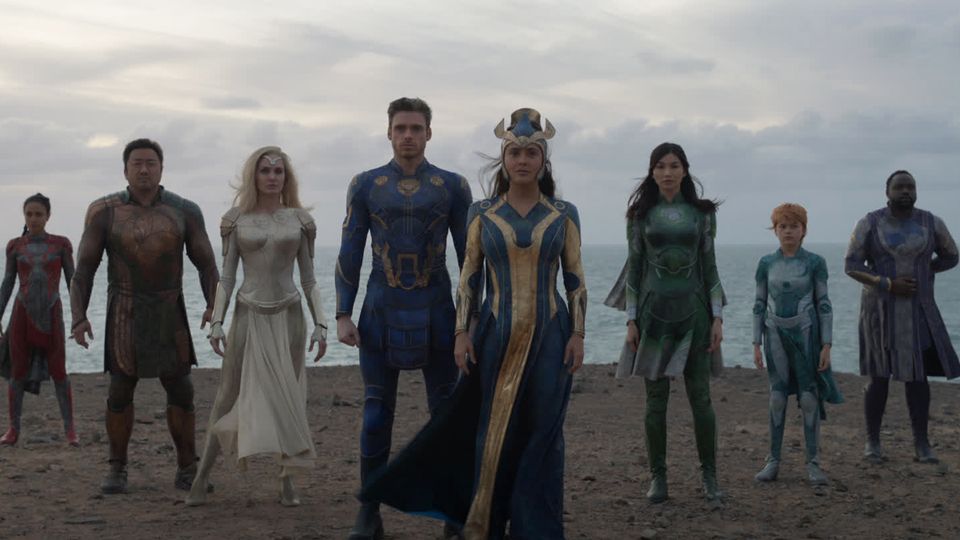
In all seriousness, Eternals attempts some legitimate explanations for why the Avengers have yet to meet or even hear about Earth’s supposed ancient, undying space guardians in the MCU, and it has something to do with an alternate offshoot of their kind known as the Deviants, the most recurring and dangerous of the Eternals’ foes from Marvel Comics lore. If this already sounds very weird and tough to follow, I can’t say I blame you. Eternals is the kind of movie that tells Dune to hold its weirdness beer. It’s a proudly experimental, defiantly obtuse odyssey through thousands of years of MCU continuity. When all is said and done though, it still somehow seems like Eternals’ place in the overall MCU narrative is a bit nebulous, and I say that as someone that actually liked the movie!
Granted, things like Celestials, Grand Judges, the Power Cosmic and other bizarre cornerstones of the Marvel Universe’s canonical origins are things I’ve understood for years, so Eternals’ gonzo storytelling didn’t manage to be lost on me. For those who don’t know the difference between a mutant or an Inhuman however (neither of which are featured in Eternals, sadly), Eternals can be a lot to swallow, in a bad way. It’s a gorgeous, epic, sprawling movie with a commendable amount of ambition behind it, but it’s also the least audience-friendly MCU movie to date, being packed with scads of eccentric lore, and a bloated runtime that often slows the pacing to a frustrating crawl. There’s a lot to be impressed by for Marvel fans with an open mind, but for everyone else, Eternals is probably going to be something of an acquired taste.
Eternals introduces a lot of new super-powered characters to the MCU! This movie features an even larger lead ensemble than the Avengers or the Guardians of the Galaxy entered into the MCU with, in fact. That can be a little daunting, especially considering that Eternals’ source comics and their related characters were previously unknown to the mainstream. The movie’s narrative at least expands its lead ensemble gradually, rather than introducing every key personality at once, but there are nonetheless many personalities to keep track of here. To be frank, there might be a few too many lead characters to keep track of too, especially for a potential MCU franchise starter based on a series of comic books that most people don’t recognize and aren’t familiar with.
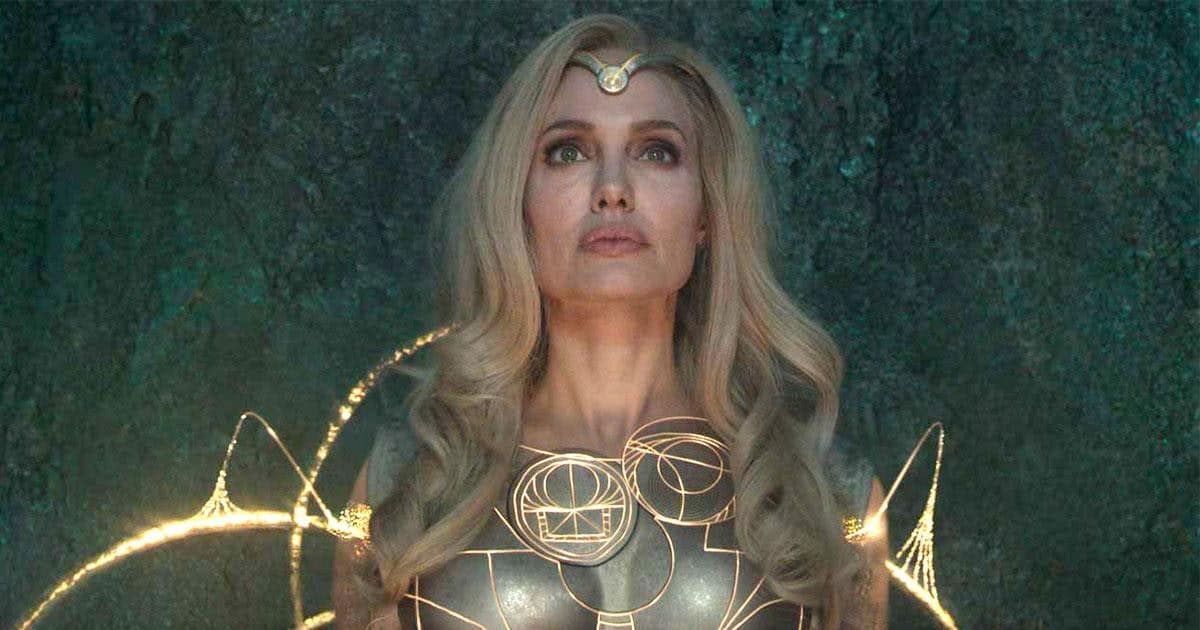
The inciting point of Eternals’ present-day narrative is built around Gemma Chan’s Sersi, with Chan returning to the MCU after previously portraying Kree soldier, Minn-erva in 2019’s Captain Marvel, as well as Richard Madden’s Ikaris. Sersi and fellow Eternal, Sprite, played by Into the Dark’s Lia McHugh, begin the movie by living together in London, England, with Sersi even having a human boyfriend, Dane Whitman, played by Game of Thrones’ Kit Harington. Harington is one of several actors that feel disappointingly under-utilized in Eternals, though considering that Dane Whitman has a rather interesting heritage in Marvel Comics lore, he likely exists in this movie simply to sequel-bait. Regardless, the arrival of Madden’s Ikaris in London is what kicks the plot into action, and starts the rapidly snowballing Eternals ensemble’s reunion.
Sersi, Sprite and Ikaris often contribute most of Eternals’ recognizable humanity to boot, as the displaced titular immortals must come back together to finalize their millennia-spanning purpose on Earth. This means that the first two acts of Eternals are largely split between examining the eponymous characters’ long pasts, dating all the way back to 5,000 B.C., and gathering the scattered Eternals in the present. Over the course of this movie, the Eternals’ MCU ensemble eventually grows to include characters like Kumail Nanjiani’s Kingo, a one-man Bollywood dynasty that contributes a lot of comic relief alongside his human valet, Karun, Brian Tyree Henry’s Phastos, a curious and likable family man, Barry Keoghan’s shady, untrustworthy Druig, Angelina Jolie’s reclusive, battle-hardened Thena, Lauren Ridloff’s energetic, super-fast Makkari, and Don Lee’s super-strong Gilgamesh. These characters are then meant to rally around their leader, Ajak, played by Salma Hayek, the only Eternal who can directly communicate with overseeing Celestial (read: giant space god), Arishem.
The Eternals are all very well-performed, and they tend to be both enjoyable and fun in the moment. The issue with their characters however most often comes from Eternals’ lore-heavy writing and strained focus. There just isn’t enough time to adequately flesh out and explore all of these many personalities, and that can make it difficult to connect with the Eternals in a way that audiences could effortlessly do with most previous MCU leads. They’re easy to like, at least, but when it comes to explicitly identifying how the Eternals connect to each other, to humanity, and to the world around them, Eternals can feel disappointingly uneven at the best of times.
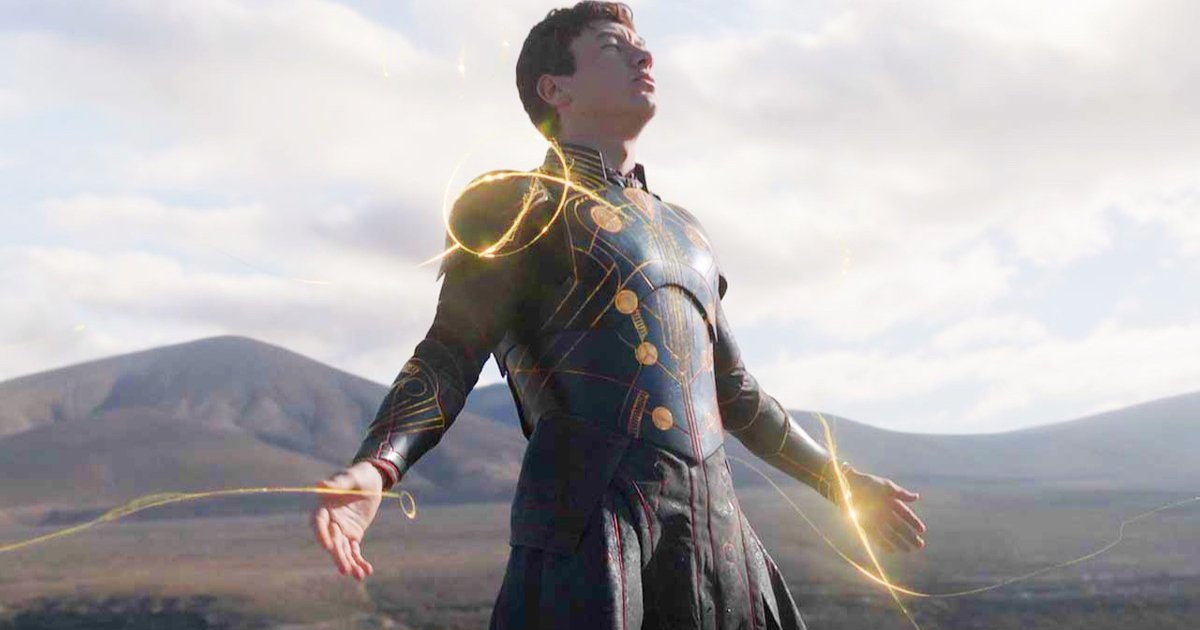
This is also before considering another supposedly important variable to Eternals’ ensemble– The Deviants. The Deviants are supposed to be the main enemies of the Eternals, and battling Deviants is the only justification that the Eternals supposedly have when it comes to directly intervening in the affairs of humanity. There’s a rich, dramatic history to the Deviants throughout Marvel Comics lore as well, though sadly, in Eternals, almost none of that is translated. Instead, the Deviants feel like a plot device and an afterthought in this movie, leaving Eternals confused about how to properly present a threat to its lead heroes. Even when Eternals does nail down what’s supposed to be at stake, it does so in a way that renders the Deviants pretty much irrelevant, leading one to wonder exactly what danger the Deviants are supposed to present to the MCU, or even to the Celestials that are supposedly pulling the strings behind the Eternals and Earth’s development.
Eternals, unsurprisingly, is built around yet another unpredictable MCU narrative that’s optimally reliant on viewers knowing as little as possible about it going in. That’s a shame when it comes to breaking down the movie’s plot foundation for the uninitiated, because Eternals is a very bizarre and complex MCU story. I’ve essentially already broken it down to its simplest possible synopsis; A group of mysterious immortals must come together in the name of an equally mysterious purpose that’s finally about to be realized in the fallout of The Blip from 2019’s Avengers: Endgame.
Everything that results from this hook is an oddly-paced, sometimes surreal exercise in some of the most offbeat MCU storytelling imaginable. This can be a mixed bag in terms of appeal, with Eternals captivating the imagination at its best, and feeling like a bad trip at its worst. The movie definitely collapses under its own weight by its climax as well, which doesn’t totally bring together its already scattered narrative into a fully satisfying crescendo.
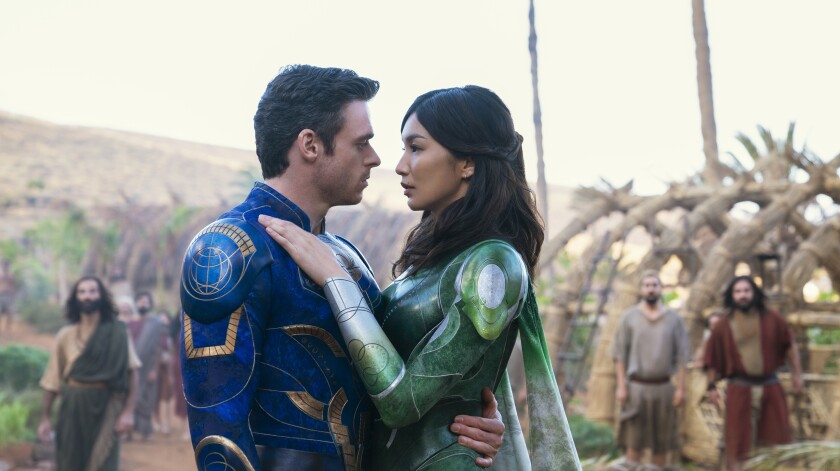
Eternals tries to compensate for its denser plot elements with a metric ton of exposition as well, and this really doesn’t end up helping in the end. Even some Marvel fans will be overwhelmed by the ridiculous amount of information that Eternals’ storyline can sometimes push onto them. This issue also leads to a plot that’s surprisingly less memorable than you would think. The various working parts of Eternals’ storyline are perfectly fine, in fairness, and they can even be great at times, especially in terms of their commendable commitment to challenging the established MCU movie formula. They just might have been better off being spread across two movies, rather than being stuffed into one.
(NOTE: The ‘Spoiler’ section, when clicked, discusses whether Eternals has any post-credits scenes, whether it features any additional Marvel character roles of note, and whether it ties into any known future projects in the MCU.)
Eternals’ second post-credits scene centers around Kit Harington’s Dane Whitman, as he debates whether or not to pick up a mysterious sword called the Ebony Blade, passed down from his ancestors. This teases that Whitman might be about to embrace his Marvel Comics history as one of the men to hold the mantle, Black Knight in the MCU, though Whitman ultimately ends up being interrupted by an off-screen voice, asking him if he’s sure he’s ready. Chloe Zhao has already confirmed that this voice belongs to Mahershala Ali’s Blade, who is planned to receive his own MCU movie at some point in the near future. While we don’t see Ali’s Blade yet, he effectively makes his MCU debut in voiceover here, possibly suggesting that Harington’s Dane Whitman may play a crucial role in the MCU’s upcoming Blade movie.
Outside of these post-credits scenes however, Eternals doesn’t appear to explicitly connect to any previous or future events in the MCU, aside from repeated mentions of The Blip anyway, as Eternals takes place not long after the events of Avengers: Endgame. Eternals also doesn’t feature any appearances from established MCU personalities, leaving the movie’s storyline relatively self-contained in MCU canon at this point, despite its otherwise grand scope.
Chloe Zhao, director of Best Picture winner, Nomadland proves to be the MCU’s latest unexpected choice to oversee one of its larger blockbusters. Zhao brings a similar Nomadland-style sensibility to Eternals as well, creating an MCU movie that aims to be contemplative as much as it is dense.
Zhao’s incredible attention to detail and cinematic scope is all over Eternals as well. This is a blockbuster that truly feels alive and engrossing, with every shot staged to perfection, and every highlight moment instantly making an impression. There’s a ton of effort put into making every frame in Eternals shine, and often not just in the action scenes! The landscape shots are particularly gorgeous, building out a millennia-spanning world that really takes the scale of the MCU’s Earth to spectacular new heights. Zhao is truly a master of making a cinematic world leap to life, and now that she’s actually been given a hefty Marvel Studios budget, her artistic pedigree creates something truly amazing to behold, even when not much is going on.
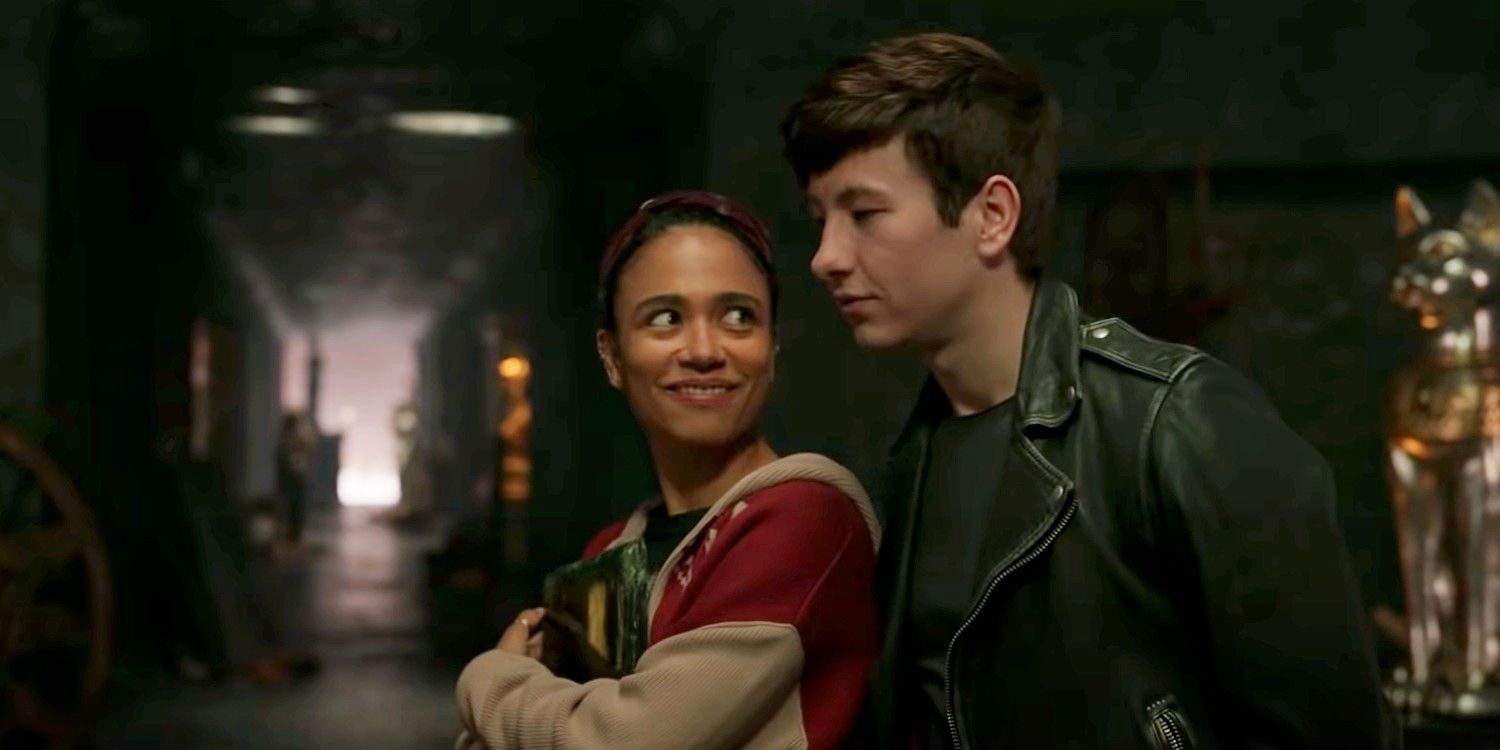
That being said however, Zhao’s priorities seem to be excessively focused around the way Eternals presents its world, and not so much how it presents its characters. Something about the alien flavour of Eternals somewhat fails to translate to the everyperson viewer, creating a bunch of characters that are often overshadowed by the wonderful, often strange world that they inhabit. Zhao still manages to capture some emotional moments between her A-list lead cast, as well as some reliably effective MCU humour, but her direction does tend to falter when it comes to giving us a window into what truly makes the Eternals tick, at least as more than the mysterious grunts of the Celestials.
Zhao’s direction also tends to get pretty lost within itself once Eternals reaches its third act. This is when the movie completely throws out audience concessions, and goes all in on positively bonkers cosmic lore, to the detriment of anyone that wasn’t already perfectly following the narrative. There’s clearly a ton of passion put behind Eternals by Zhao and her crew, but its ultimate result leads to a cinematically breathtaking blockbuster that nonetheless fails to connect with audiences at some key points.
Eternals’ musical styling is yet another element of its production that’s quite different than what you would expect. Ramin Djawadi composes Eternals’ score, being best known for putting together the soundtracks for movies like Pacific Rim, Clash of the Titans and Warcraft. In other words, movies that are especially huge in scope, much like Eternals.
Where Djawadi’s score especially deviates from your run-of-the-mill MCU movie soundtrack as well is the fact that it’s much quieter, and sometimes barely present at all. There are even many pivotal scenes in Eternals that are purely driven by ambience, with no musical backdrop to speak of. There’s something meditative and surprisingly sad about the music suite behind Eternals much of the time, giving a cerebral air to an otherwise colourful, fantastical movie. There are nonetheless a handful of more lively tracks to complement the action scenes, but even some of those go for quiet dignity over sheer fervor. It’s a very different flavour of Marvel movie music, but it feels appealing all the same, giving us something a little more unique among the glut of modern theatrical blockbusters, Marvel-made or otherwise.
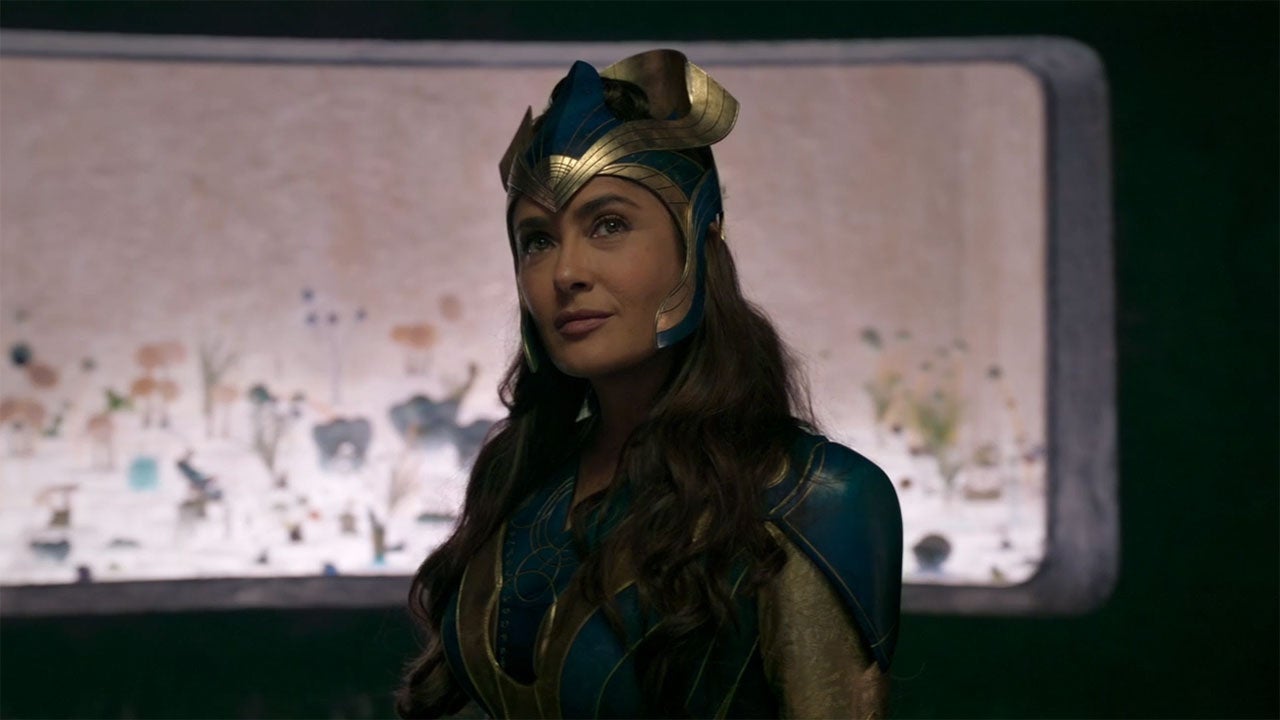
Of course, offsetting the more reserved musical style of Eternals is a general audio suite that’s determined to capture the overwhelming, god-like might behind Eternals’ eponymous characters. There can sometimes be a jarring rush of sound when the Eternals actually flex their powers, almost as if they’re mimicking the extra bombastic action audio of the DC Extended Universe, rather than the MCU. Sure, all MCU heroes have strong audio flourishes to accompany their action-packed moments, but the Eternals truly go the extra mile here, displaying the kind of outstanding, nigh-deafening power that would sometimes give even Thor pause.
Even in a year that’s been outrageously packed with MCU additions, between both theatrical movies and Disney+ shows, Eternals somehow still finds ways to keep elevating the MCU’s outstanding visual standards. The Eternals characters, along with their various powers, are all realized incredibly well, to the point where even the Eternals’ comic-faithful costumes look surprisingly impressive and credible here. Needless to say, Eternals’ action scenes are exciting and well-presented to boot, capturing some really imaginative choreography thanks to some of the most powerful and god-like characters introduced into MCU canon to date.
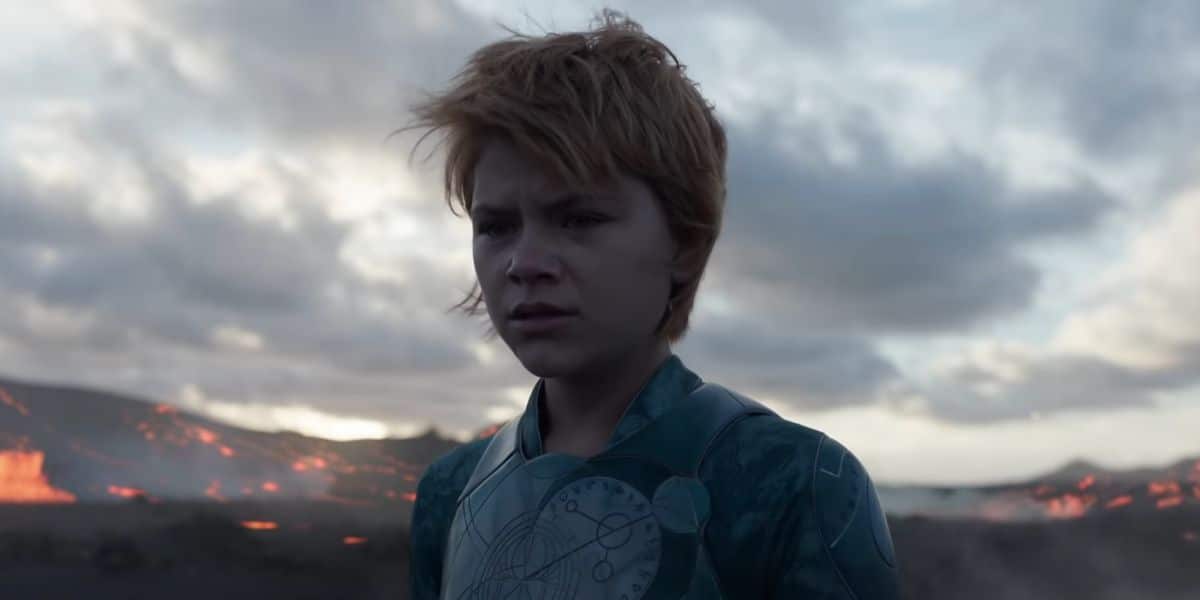
As I mentioned however, the real star of Eternals is its world. Everything from its locations, to its thematic sequences, to its tours through the Eternals’ millennia-long influence within the MCU’s human history is absolutely magnificent. There’s an astonishing amount of visual creativity put into how the various cosmic and alien touches throughout Eternals’ storyline present themselves, and yet they still fit wonderfully into some of the MCU’s most gorgeous earthbound landscapes to date. Even the most subdued of Eternals’ visual beats are positively stunning, creating an aesthetic masterwork that’s not just one of this year’s best-looking MCU offerings, but quite possibly one of the best looking movies of 2021, period!
Eternals is the kind of blockbuster movie that’s easy to be impressed by, but not as easy to be truly engrossed in. There are still some viewers that will adore the movie’s unique sensibilities from the get-go though, especially if they’re eager to see a more significant deviation from the MCU’s usual playbook.
For everyone else, Eternals might take several viewings to fully understand and absorb, assuming the moviegoers in question find anything that manages to motivate them into said repeat viewings in the first place. Considering that the MCU is primarily built around digestible, crowd-pleasing popcorn flicks as well, this might explain why Eternals saw such an initially cold reception from critics, and why a good chunk of moviegoers weren’t initially sure what to make of it.
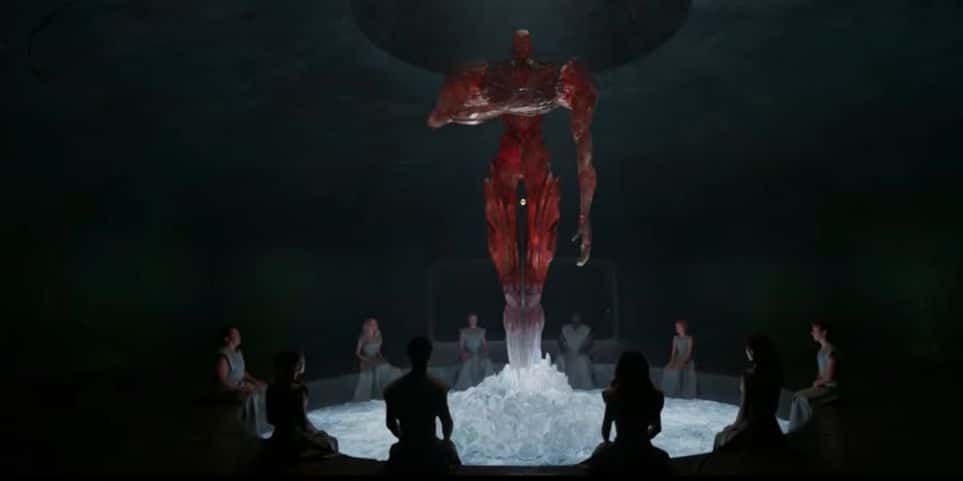
Frankly, as easy as it is to commend how courageous and experimental Eternals often is, particularly with its diverse cast and millennia-spanning storytelling, it’s not a universally successful experiment, even if it’s also far from a failed one. Eternals just went too big, too fast, though if nothing else, it does succeed at continuing to prove that the MCU has an uncanny knack for always finding new frontiers, no matter how bizarre or mystifying they may initially seem.

